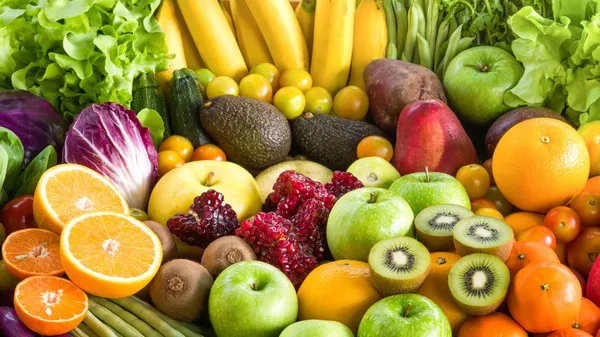B vitamins are a group of essential nutrients that play a crucial role in maintaining our overall health and well-being. From supporting energy production to aiding in cell metabolism, B vitamins are essential for various bodily functions. But where do we get B vitamins? In this comprehensive guide, we will explore the different sources of B vitamins, their benefits, and the roles they play in our bodies. By understanding the importance of these nutrients and their dietary sources, you can make informed choices to ensure you’re getting an adequate intake of B vitamins.
The B Vitamins: An Overview
1. The B Complex
B vitamins belong to a group known as the B complex vitamins. This group includes eight distinct vitamins: B1 (thiamine), B2 (riboflavin), B3 (niacin), B5 (pantothenic acid), B6 (pyridoxine), B7 (biotin), B9 (folate), and B12 (cobalamin). Each B vitamin has unique functions and benefits for the body.
2. Vital Roles
B vitamins are involved in converting food into energy, supporting brain function, aiding in the formation of red blood cells, and contributing to the health of our skin, hair, and eyes.
See Also: Why Are B Vitamins Called B Vitamins: What You Want to Know
Dietary Sources of B Vitamins
1. Whole Grains
Whole grains such as brown rice, whole wheat, and oats are rich sources of several B vitamins, including thiamine, riboflavin, niacin, and folate. They provide sustained energy and are a staple in many diets.
2. Lean Protein
Lean protein sources like poultry, fish, and eggs contain B vitamins such as B6, B12, and niacin. These vitamins contribute to healthy metabolism and the production of red blood cells.
3. Dairy Products
Dairy products like milk, yogurt, and cheese are sources of riboflavin and B12. Riboflavin plays a role in maintaining healthy skin and eyes, while B12 is essential for nerve function and red blood cell formation.
Plant-Based Sources
1. Leafy Greens
Leafy green vegetables like spinach, kale, and broccoli are rich in folate, a B vitamin that supports cell division and the development of DNA.
2. Legumes
Legumes, including beans, lentils, and chickpeas, are excellent sources of various B vitamins, particularly folate, thiamine, and niacin.
3. Nuts and Seeds
Nuts and seeds, such as almonds, sunflower seeds, and flaxseeds, provide essential B vitamins like niacin, riboflavin, and biotin.
Fortified Foods
1. Fortified Grains
Many grain-based products, such as cereals and bread, are fortified with B vitamins, especially folic acid and B12. These fortified foods contribute to meeting daily nutrient requirements.
2. Plant-Based Alternatives
Fortified plant-based milk alternatives, such as almond milk and soy milk, often contain added B vitamins like B12 and riboflavin.
B Vitamin Supplements
1. Considerations for Supplementation
While obtaining B vitamins from whole foods is ideal, certain situations may necessitate supplementation. Individuals with dietary restrictions, specific health conditions, or limited access to diverse foods may benefit from B vitamin supplements.
2. Consultation with Healthcare Professionals
Before starting any supplementation regimen, it’s crucial to consult with a healthcare professional to determine whether supplements are necessary and appropriate for your individual needs.
Benefits of Adequate B Vitamin Intake
1. Energy Production
B vitamins, particularly B1, B2, B3, and B5, play a pivotal role in converting the carbohydrates we consume into usable energy.
2. Brain and Nervous System Health
B vitamins like B6, B9, and B12 support the health of the brain and nervous system. B6 aids in neurotransmitter production, while B9 and B12 contribute to cognitive function.
3. Cell Regeneration
Folate, also known as B9, is vital for cell division and DNA synthesis. It is especially important during periods of rapid growth, such as pregnancy.
Maintaining B Vitamin Levels
1. Balanced Diet
Maintaining a balanced diet that includes a variety of whole foods ensures you receive a range of B vitamins to support overall health.
2. Food Preparation
Certain cooking methods can affect the B vitamin content of foods. Minimize heat exposure and avoid overcooking to preserve nutrient levels.
3. Dietary Diversity
Aim to consume a diverse range of foods from different food groups to ensure you’re receiving adequate B vitamins from various sources.
Conclusion
In conclusion, B vitamins are essential nutrients that contribute to various bodily functions, including energy production, metabolism, and brain health. Obtaining B vitamins from a well-rounded diet that includes lean proteins, whole grains, dairy products, fruits, vegetables, and fortified foods is key to ensuring your body’s optimal functioning. Whether you’re a vegetarian, omnivore, or follow a specific dietary plan, being mindful of your B vitamin intake can help you maintain overall health and well-being. Remember that while supplements can be beneficial in certain circumstances, whole foods remain the most natural and effective way to provide your body with the B vitamins it needs to thrive.


